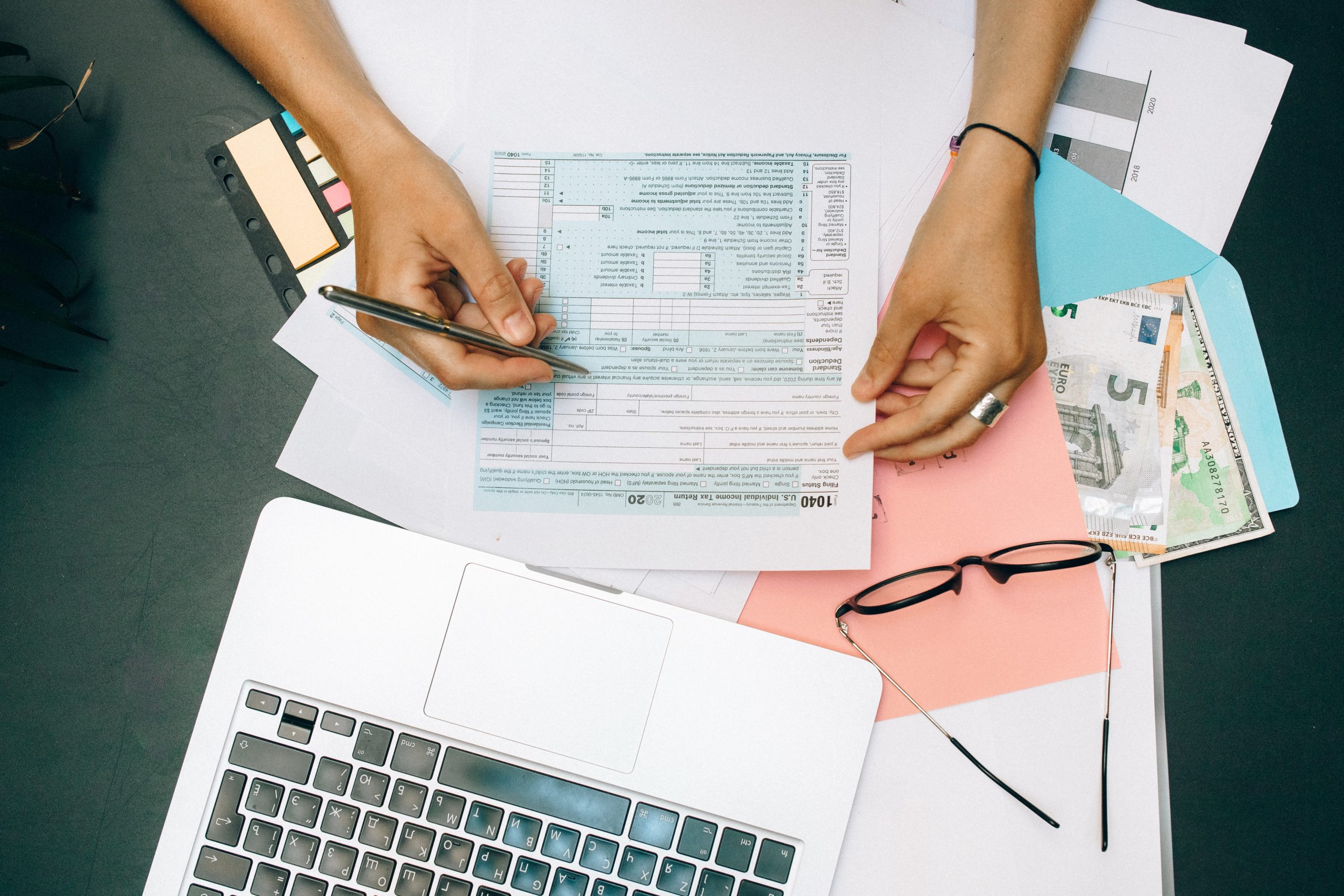16 Dec How To Prepare Taxes for Small Business
It’s an unavoidable fact: if your business earns any sort of profit, you have to pay tax.
As you start or scale your venture, figuring out how much tax to pay and how to prepare your tax return can feel overwhelming.

To stay on top of things, it’s best to view small business tax preparation as a year-round exercise. The more aware and organised you are, the easier things will be when tax time rolls around.
Here are some tips to help you figure out how to prepare taxes for small business.
#1 Keep detailed records
When you operate a small business, the first thing you should do is set up bank accounts that are separate from the ones you use for personal expenses.
You also need a system to keep records of your business-related spending, whether this is an app that stores receipts, an online accounting platform or a spreadsheet that you update manually.
Make sure to hold on to evidence of:
- Customer payments
- Bills and expenses
- Vehicle operating expenses
- Details of loans and credit accounts
- Rental payments or costs
By keeping detailed records, you’ll be able to share evidence of your income and expenses. This makes it far easier to figure out how much tax you need to pay. Using an online system like Xero or MYOB is best because you won’t find yourself sifting through documents and receipts.
#2 Put a ballpark sum aside
You can’t always determine exactly how much tax your small business will pay but as a rule of thumb it will equate to between 25 and 30% of your profits. There are also other taxes such as GST, income and PAYG tax which you will have to hand over to the ATO throughout the year.
As part of your small business tax preparation process, aim to put aside a percentage of around 20-30 per cent of your business profits for tax. Once you have worked through your BAS for one or two quarters, you should have an idea of how much money you will need. However, if your income increases or drops, the figure will need to be adjusted.
Putting aside a little too much money is better than not enough as you will end up with some cash to spare and won’t find yourself chasing your tail.
#3 Stay on top of your tax duties
Small businesses in Australia must submit a Business Activity Statement (BAS) once per quarter. Your BAS includes figures relating to:
- GST
- PAYG tax instalments (which will only be generated on your BAS after you have lodged your first payable tax return)
- PAYG withheld (this is the tax you pay on behalf of your staff)
- Fringe benefit and luxury car taxes
The quarters end on the last day of March, June, September and December. The deadlines for submitting your BAS to the ATO are the 21st of April, July, November and January. However, if you engage the services of a tax agent, you will receive an extra four weeks to lodge.
The tax bill that is calculated based on your BAS will usually include your GST and your PAYG instalment, which is a quarterly prepayment of business tax.
You also have to lodge your annual tax return. Generally speaking, the deadline for this is October 31st but if you use an accountant you may be able to lodge it later.
Failing to meet your tax reporting obligations can result in penalties so you need to consider your tax duties as part of your regular business routine.
#4 Understand your tax structure
If you’re operating with an ABN as a sole trader, you will be taxed as an individual after the expenses of operating your business are deducted. Your sole trader profits will be added to any other personal income you have for the tax year (e.g. salary and wage income).
Generally speaking, as a company, you pay income tax on every dollar outside of your expenses. It can help to work with a tax accountant to figure out the right tax structure for your business and make sure you are paying your taxes accordingly.
#5 Understand what you can claim as a tax deduction
Small businesses pay tax based on profits, not revenue. For example, if your business generates $2 million in revenue but $1.5 million goes towards operating costs and expenses, you will only pay tax on the remaining $500,000 (generally speaking).
Operating costs that can be claimed as tax deductions include:
- Staff salaries and wages
- Marketing and advertising expenses
- Rent
- Equipment and supplies (don’t forget to factor in depreciation, which can be claimed over several years)
- Inventory
- Consultant fees
- Business-related travel costs
Knowing what you can and can’t claim will help you make better expense-related decisions. Keep in mind that paying tax means your business is earning money, which is a good thing. If you are well-organised you will be able to prepare taxes for small business and stay in control financially.
Small business tax preparation cost
As a small business, it may be tempting to figure out how to prepare your taxes and submit your information to the ATO yourself. However, there may be deductions you’re not aware of and you risk failing to meet your regulated obligations.
If you turn over less than $1 million, you can request a standard company tax return from Taxopia. Starting from just $400, this means you won’t have to figure out how to prepare your tax return for small business on your own.
Find out more about low cost small business tax returns today.
Should you require any additional assistance please don’t hesitate to contact us.





